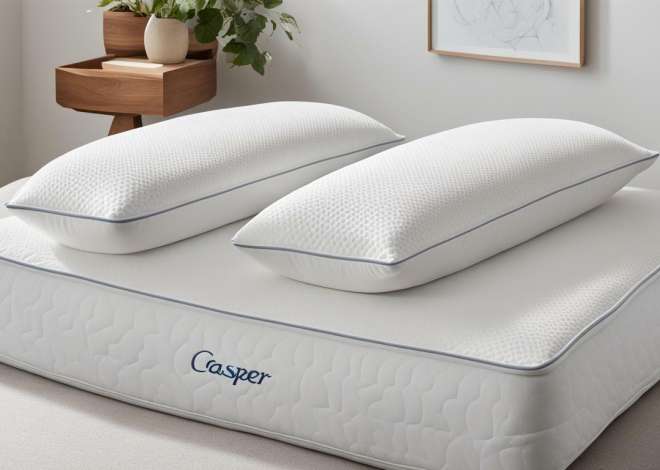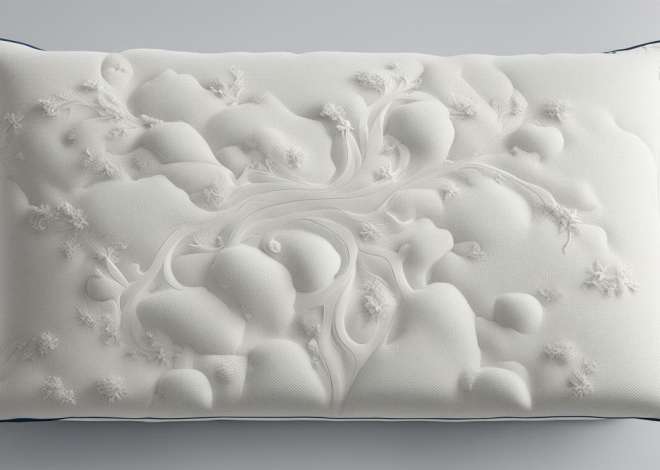
Polyester vs Cotton Pillowcases for Skin Hydration
In today’s beauty-conscious society, we are all aware of the importance of maintaining healthy, hydrated skin. However, many of us neglect the fact that the type of fabric we use for our pillowcases can greatly impact our skin’s hydration levels. In this article, we will explore the differences between two popular fabric materials for pillowcases, polyester, and cotton, and their effects on skin hydration.
Introduction to the Importance of Pillowcases for Skin Health
Pillowcases play an important role in our overall skin health. We spend a significant amount of time sleeping with our faces on our pillows; therefore, our pillow’s fabric material comes into contact with our skin for long periods. A pillowcase that is harsh, rough, or irritating can cause wrinkles, acne, and other skin issues. On the other hand, a soft and gentle pillowcase can help maintain skin hydration levels and prevent skin irritations.
It is also important to consider the material of the pillowcase. Cotton pillowcases are a popular choice as they are breathable and gentle on the skin. However, silk pillowcases are becoming increasingly popular due to their smooth texture, which reduces friction and prevents creases and wrinkles. Additionally, silk pillowcases do not absorb moisture from the skin, helping to keep the skin hydrated throughout the night. Ultimately, choosing the right pillowcase can make a significant difference in the health and appearance of your skin.
Understanding Polyester and Cotton as Fabric Materials
Polyester and cotton are the two most common materials used for pillowcases. Polyester is a synthetic fiber made from petroleum-based products, while cotton is a natural fiber harvested from cotton plants.
Polyester is known for its durability, wrinkle-resistance, and color retention. It is also relatively inexpensive, making it a popular choice among homeowners. Cotton, on the other hand, is more breathable, absorbent, and softer to the touch than polyester. Cotton is also hypoallergenic and ideal for people with sensitive skin.
When it comes to caring for pillowcases made from polyester and cotton, there are some differences to keep in mind. Polyester pillowcases can be washed in hot water and dried on high heat without shrinking or losing their shape. However, they may pill over time and become less soft. Cotton pillowcases, on the other hand, should be washed in warm water and dried on low heat to prevent shrinking. They may also require ironing to maintain their smooth appearance.
How Do Pillowcases Affect Skin Hydration?
Pillowcases can affect our skin’s hydration levels in several ways. First, the type of fabric can determine how much moisture is retained in the skin. A fabric that traps moisture can help maintain the skin’s natural hydration levels, making the skin look healthy and supple. Additionally, pillowcases that are rough or abrasive can cause skin irritation and contribute to a loss of hydration in the skin.
Another factor to consider is how often you change your pillowcase. Pillowcases can accumulate dirt, oil, and bacteria over time, which can transfer onto your skin and clog pores. This can lead to breakouts and a decrease in skin hydration. It is recommended to change your pillowcase at least once a week to maintain good skin hygiene and prevent any negative effects on skin hydration.
Pros and Cons of Polyester Pillowcases for Skin Hydration
Polyester pillowcases are known for their durability and resistance to wrinkles and stains. However, it is not absorbent, which can cause moisture to build up on the skin instead of being absorbed. Additionally, polyester can cause skin irritation and redness in people with sensitive skin.
Pros and Cons of Cotton Pillowcases for Skin Hydration
Cotton pillowcases are more absorbent than polyester and can prevent moisture from building up on the skin. They are also gentle on the skin and hypoallergenic, making them ideal for people with sensitive skin. However, cotton pillowcases can be more expensive than polyester and are prone to wrinkles and shrinkage after washing.
The Role of Thread Count in Pillowcase Selection for Skin Health
Thread count refers to the number of threads woven into one square inch of fabric. A higher thread count indicates a softer, more luxurious fabric. A higher thread count in a pillowcase can be beneficial to skin hydration because it means that there are more threads in the fabric to absorb moisture from the skin.
How to Choose the Best Pillowcase Material for Your Skin Type
When choosing a pillowcase material, it is essential to consider your skin type. For those with sensitive skin, cotton is the better option. However, if you want a pillowcase that is sturdy, durable, and inexpensive, polyester is a good choice. It’s also essential to consider the thread count of the fabric. If you have dry skin, a higher thread count means the pillowcase will retain more moisture, keeping your skin hydrated through the night.
Alternatives to Polyester and Cotton Pillowcases for Skin Hydration
If you’re looking for an alternative to a cotton or polyester pillowcase, silk and satin are excellent options. Both materials are gentle on the skin and retain moisture while you sleep, preventing skin dryness and wrinkles. However, silk and satin can be more expensive than cotton and polyester.
Tips on Maintaining Your Pillowcase’s Hygiene for Optimal Skin Health
To ensure the optimal health of your skin, it is essential to maintain the hygiene of your pillowcase. Regularly washing your pillowcase with a fragrance-free, hypoallergenic detergent will help remove any impurities or dirt that may collect on the pillowcase, which could cause skin irritation and acne. Additionally, it is recommended to change pillowcases once a week to prevent the accumulation of sweat, oil, and dirt from transferring onto your skin while you sleep.
Conclusion: Which is Better – Polyester or Cotton Pillowcases for Skin Hydration?
Ultimately, the choice between a polyester or cotton pillowcase for skin hydration comes down to personal preferences and skin type. While polyester pillowcases are durable, wrinkle-resistant, and inexpensive, cotton pillowcases are more absorbent, gentle on the skin, and hypoallergenic. Remember to consider the thread count of the fabric and maintain the hygiene of your pillowcase for optimal skin health.
By following these tips and considering your skin type, you can choose the perfect pillowcase to keep your skin hydrated and healthy while you sleep.


